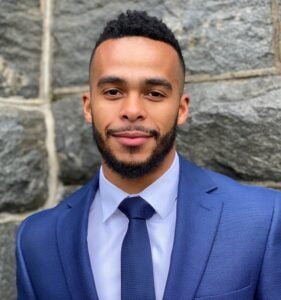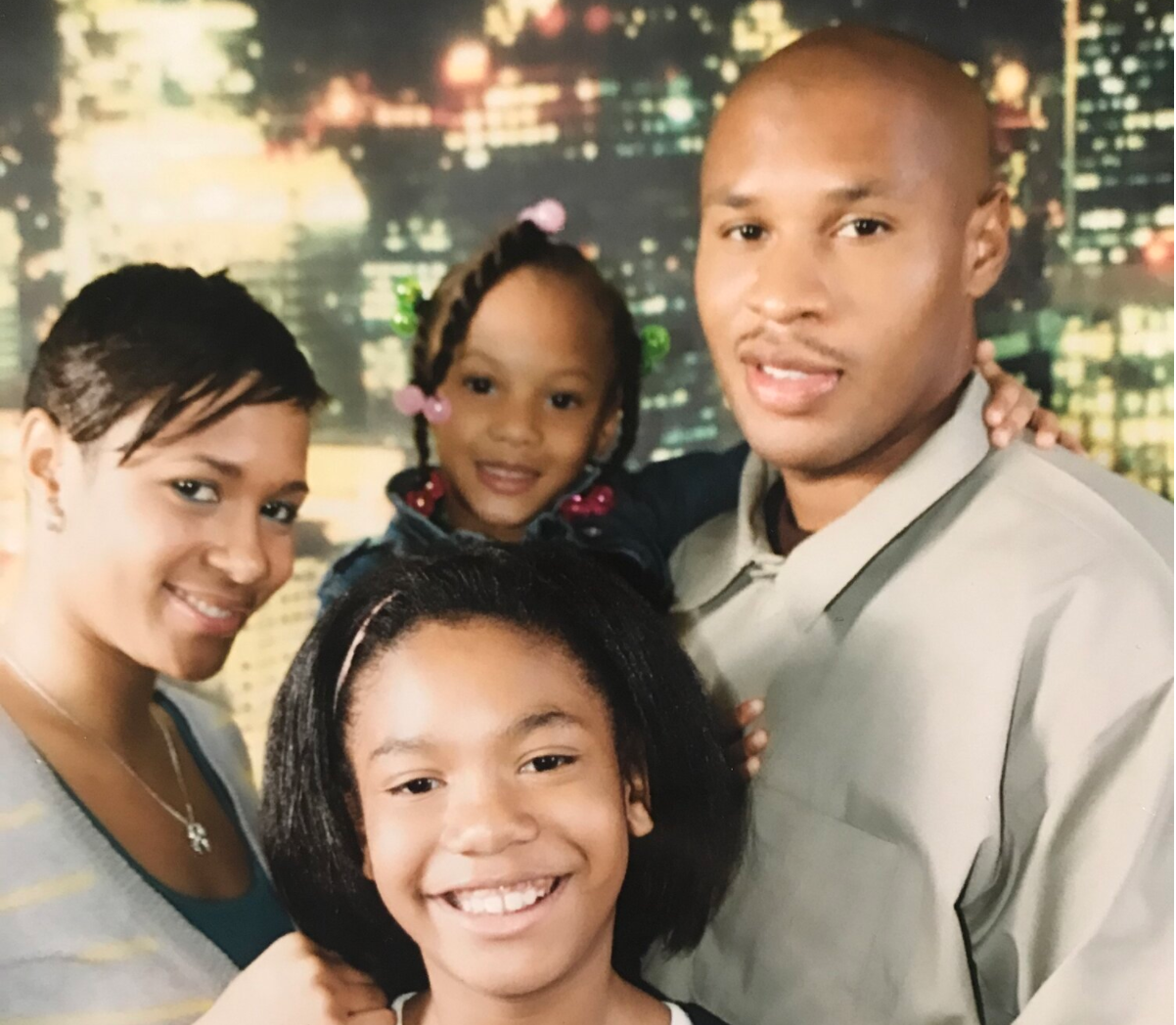College Alumni and Senior Make Award Winning Documentary in Hopes of Freeing Wrongfully Convicted Man
Johnsenia Brooks (C’20), Cecily Burge (C’21) and Austin Riddick (C’20) recently released their documentary, Walk Tall: A Story of Innocence and Wrongful Conviction, that tells the story of Edward Martinez, a man serving a 55-year sentence for a crime he did not commit. The trio hopes that this documentary, which won the Beeck Center Award for Social Impact in 2020 as part of the Library Showcase Awards, will garner public support in the case for Martinez’s freedom and advance much needed criminal justice reform.
“Not only did Johnsenia, Cecily, and Austin do a phenomenal job creating and producing an award-winning short documentary about Edward Martinez’s innocence, but they treated this project as if their own lives depended on it,” says Marc Howard, director of the Prisons and Justice Initiative. “Their commitment to depicting the truth and correcting injustice is inspiring. They—along with their classmates who worked on four other wrongful conviction cases—truly embody the Georgetown ethos of “Hoyas for Others.”
Passion for Justice

Johnsenia Brooks (C’20), alumna
Burge solidified her interest in criminal justice reform after attending a lecture about college behind bars in her first year, which Howard moderated.
Through this lecture, Burge became involved with Mission to Mobilization, an organization that works to combat recidivism and end the stigma around people who are returning to society after serving their prison sentences. She was also inspired by the time she spent at the Washington, D.C. jail, with Howard, where she met Momolu Stewart and Halim Flowers, both of whom are no longer incarcerated.
“Their stories have helped me come to believe that no one deserves to be incarcerated, innocent or guilty,” Burge says. “No one deserves those conditions.”
Burge’s passion for criminal justice reform led her to apply to be a part of the Making an Exoneree course in the spring of 2020. Out of 100 applicants, only 15 were selected. The then-junior was partnered with seniors Brooks and Riddick and together they began to work to exonerate Martinez by identifying new exculpatory evidence and building a case for his innocence.
Making an Exoneree

Cecily Burge (C’21), senior
Brooks, Burge and Riddick chose to work on Martinez’s case because it was demonstrative of the indifference that is often commonplace in the criminal justice system, particularly towards people of color.
“Edward’s is not the type of case that garners sympathy in everyone. In many ways, his case represents American apathy,” says Burge. “No one involved in his conviction actually believes that he is guilty, but he was imprisoned regardless. That should be concerning to everyone.”
In 2006, Martinez was charged with first-degree murder because he refused to identify the shooter of David Hicks, who threatened Martinez’s family if he gave up his identity in court. Martinez had no prior knowledge that the decedent would be shot, but he was charged with aiding and abetting for his role as the driver of the vehicle the shooter was in to and from the scene of the crime.
The shooter fled to Atlanta, GA, and has never been tried or convicted. Martinez is currently incarcerated at the penitentiary nicknamed “Bloody Beaumont” in Texas, hundreds of miles away from his family in D.C.
In an effort to prove Martinez’s innocence, the three Georgetown students reinvestigated the crime scene, interviewed individuals who have recanted their trial identifications, obtained proof of police misconduct and uncovered improper witness payments to build Martinez’s case. The team had scheduled a polygraph test for March of 2020, but the day that Burge flew to Beaumont to meet with Martinez, the penitentiary locked down due to COVID-19.
Despite the obstacles the pandemic brought about, the group pushed on. They conducted the remaining interviews over Zoom for their documentary and continued to work with Martinez’s attorney to fight for his innocence. By sharing Martinez’s story, they hope to garner wide-ranging support, which may ultimately sway a judge’s decision to reopen the case.
Brooks notes that aside from the class’s goal of sharing and advocating with Martinez on his actual innocence, the case brings to light other aspects of the criminal justice system that are deeply problematic.
“The state chose to incentivize witnesses that were victims of drug addiction at the time of the trial. Reading through the trial transcripts, we also see a guilt presumptive trial where the judge chooses to characterize Edward and the shooter as one in the same,” she explains. “We hope that in watching our documentary, viewers question the integrity of our criminal legal system, especially as it relates to police misconduct and the handling of vulnerable witnesses in communities of color.”
Fighting Forward

Austin Riddick (C’21), alumnus
The documentary aired in late May of 2020 after Brooks and Riddick graduated, but all three Hoyas speak with Martinez daily and continue to advocate for his freedom.
Brooks was able to garner support for Martinez through the Innocence Project, an organization that helps fight wrongful convictions, where she now works full-time as a paralegal. Burge, who was recently accepted into Georgetown Law, continues to advocate for Martinez’s freedom by working with the attorney assigned to his case. She will also serve as the teaching assistant for Making an Exoneree this spring semester.
Riddick, who is currently earning his JD from Harvard University, says that “Edward Martinez is a brilliant, compassionate father stolen from his family and sentenced to life in prison for a murder he did not commit.”
Like Brooks and Burge, Riddick has vowed to continue fighting for Martinez’s freedom until he comes home.
“Despite the injustice with which he has been treated, Edward remains committed to returning to his community and improving it, so that young people in D.C. do not have to endure what he did,” he says. “Our community needs him.”

